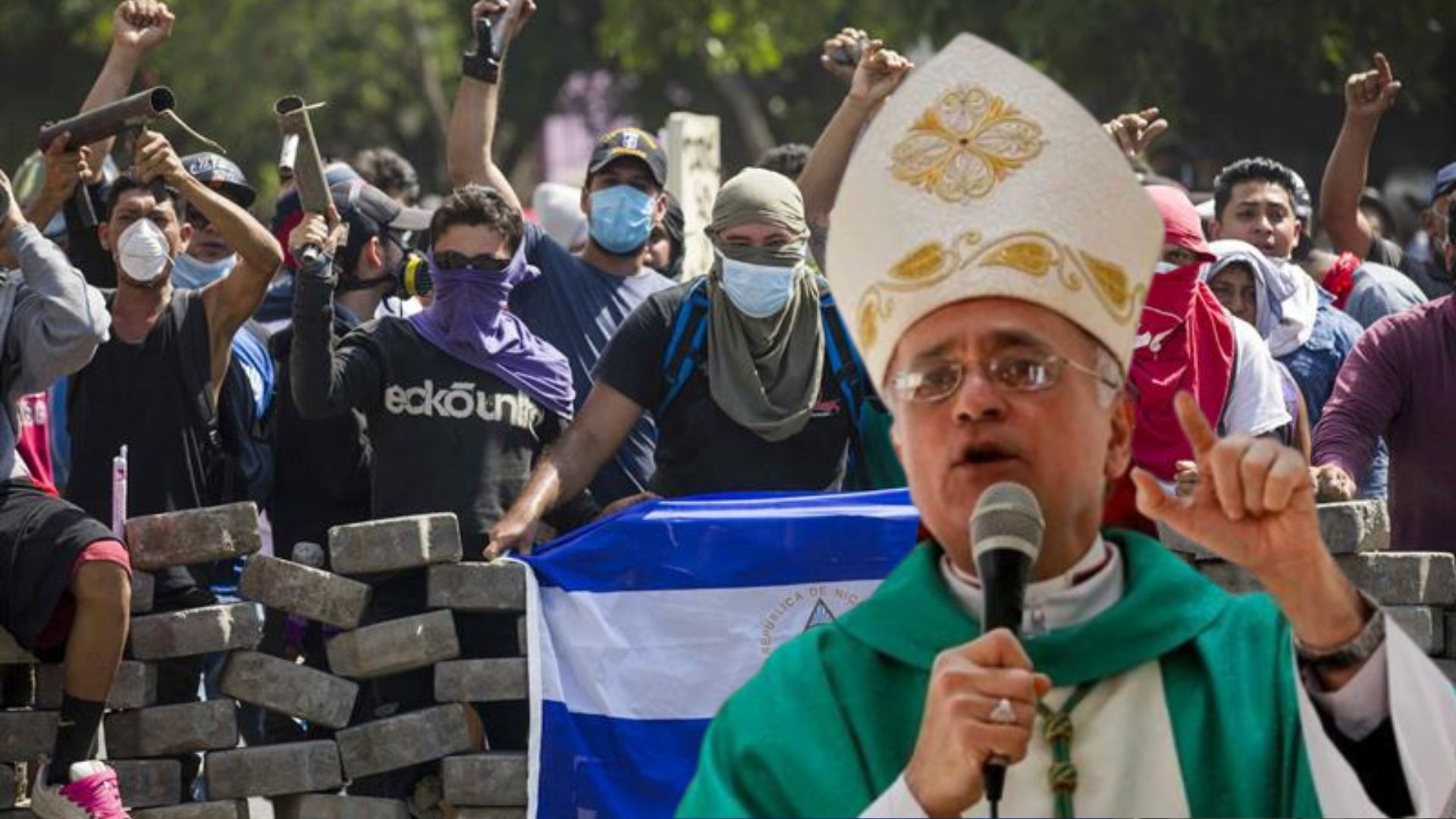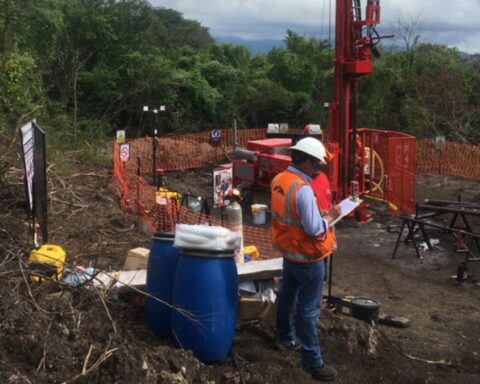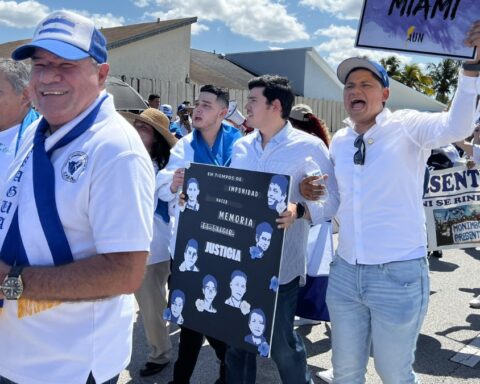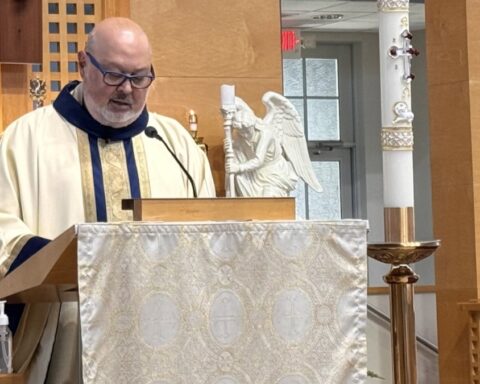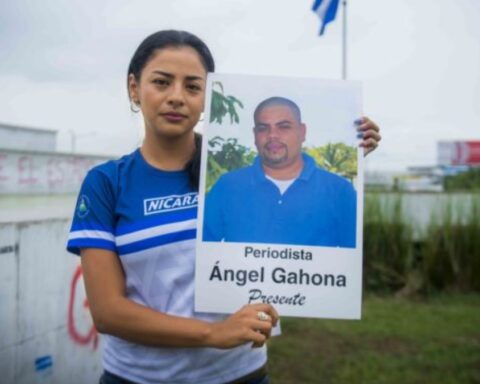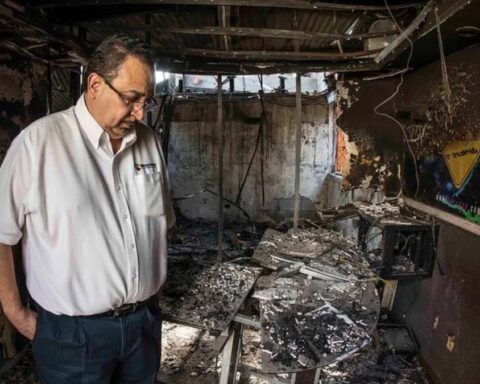Monsignor Silvio Báez, auxiliary bishop of Managua, recalled together with Nicaraguan opponents who attended his homily this Sunday at the Santa Agatha Church in Miami, United States, that this April 18 Nicaragua commemorates four years of the civic rebellion that began in 2018.
«Tomorrow is April 18 and Tuesday 19, two unforgettable dates, indelible from the minds and hearts of Nicaraguans; in the history of our country. We cannot not remember these two dates where life has triumphed over death, Christ has risen, “said the religious.
Related news: Exiles will participate in Monsignor Silvio Báez’s mass in commemoration of the fourth anniversary of civic struggle
The prelate described April 18 and 19 as “painful memories”, but also as dates of “fertile hope”. “These are painful memories because many of our compatriots were killed by the repression of the dictatorship -of Daniel Ortega-, dreaming of a free homeland.”
The bishop recalled that the repression unleashed by the Ortega regime has forced thousands of opponents to flee into exile, others wounded and disappeared. “This is a pain that must not be forgotten because it is like a labor pain. Nicaragua is giving birth to a new society. In every birth the delivery is painful and the new born is Christ Jesus».
“April is a memory that we should not trivialize”
Báez, who like thousands of Nicaraguans suffers from forced exile due to his defense of victims of state repression, emphasized that this month “is a painful memory that we must not forget and we must not trivialize.”
«Those who gave their lives four years ago were not playing, they were not playing dirty political games; they were dreaming of something big for all of Nicaragua. They did not hesitate to expose themselves to the point of losing their lives »he pointed out.
Regarding the more than 170 political prisoners, Monsignor Báez said that “those who are still in jail suffering the consequences, they are not playing; they have been exposed and that is why they are there. Many of them disappeared and we will never know the name.
He stressed that as a result of “the citizen explosion,” thousands of compatriots had to go into exile so as not to be victims of the Ortega regime. “No one has played. The lives of many Nicaraguans were sacrificed and the country continues to bleed because of that memory; let’s not forget it but let’s not trivialize it because it is very serious », he stressed.
Related news: Monsignor Báez: “The night of the oppressive powers, of the pain of the victims, is not forever”
“The pain of Nicaragua is a labor pain and those of us who have to attend the birth are us, until we give birth to a new society based on justice and peace, respect for dignity, human rights and the freedom of citizens. This is part of the resurrection », he remarked.
Báez concluded by stating that despite all the “painful” situations and memories, April is a strong hope, not only because we have to look back, but we have to look forward, because April is a paradigm that cannot be erased.
“It is not a simple date on the calendar, but it is the paradigm with which we Nicaraguans can rebuild our country, because what happened in April 2018 is what has to happen every day in Nicaragua, because they were self-convened movements; the people showed that they can be the protagonist of history and do not need leaders to carry it forward».
Related news: Monsignor Silvio Báez and his mark in 13 years as auxiliary bishop of Managua
Monsignor Silvio Báez is one of the most critical religious voices of the dictatorship of Daniel Ortega and Rosario Murillo. His position in favor of Nicaraguans led him to be subjected to siege, threats and persecution, which forced him to leave Nicaragua, but he continues to demand justice and deliver prophetic homilies denouncing the human rights violations and crimes of Sandinismo. .
“The pains of the people are the pains of God, let us not forget that history is not determined by the powerful, but by the people in their ability to organize and dream,” he stressed with aplomb.

